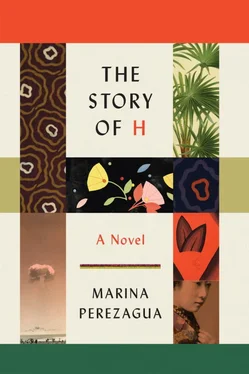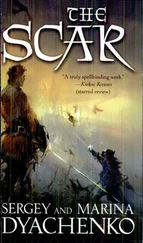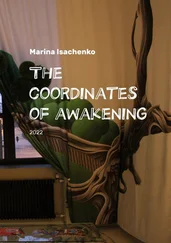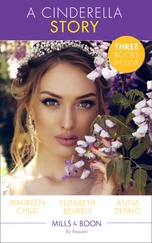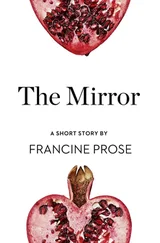Jim, my love. Here I am, me, who never believed in life after death, writing to you. You see? My writing is all messy now, because I realize I never told you the crucial part. I should have told you in the beginning that Yoro was one of the attractions in the zoo. Yep. Like another animal. You’re asking yourself why, I bet. And I know you’re not here, you aren’t reading this, it’s absurd to be writing to you, and yet I have to find the right words to tell you delicately that Yoro wears five bronze rings around her neck. Almost five pounds of weight on her collarbone. I found her huddled in her cell. A ring around her neck was chained through a loop to one of the bars. “A guard told me that Burma is at war.” That was the first thing she said to me. Only afterward did I realize that Burma is where you had suffered too. Is that land still in conflict? You didn’t come immediately to mind because when Yoro mentioned Burma, it was meant as some kind of rationalization for the wars. It didn’t seem so strange, more like a discreet form of asking forgiveness for all forms of conflict in general. As I said, Yoro’s most outstanding feature is kindness. She spoke to me in her mother tongue, Japanese. It’s the language her mother taught her as a protection, she told me later, so that nobody would understand them. She was curled into a ball of sadness, all except for her neck, which was tall and straight. There was a tiny cage at her feet. A cricket inside. “An insect and a giraffe woman are alike in one way,” she told me. “If you remove one of our rings, we’re nothing.” I imagine it must be true. The insect would bleed to death, the neck of the woman would break. When I severed the chain that held her in the cage, it took an hour for her to articulate a single word. Then she started to speak.
Before explaining what will lead to the end of my life, I have to tell you the story, link by link as Yoro told it to me, of what took her mother, our daughter, from Japan to Africa. It’s not about her mother getting sick. As you know, the medical reports the families sent periodically always showed stable results. Yoro was a strong baby, resilient, a healthy adolescent. The top secret project, the test-tube baby created with the hope of observing how weeds flower in it, how the pitiable cypress trees of radiation sickness grow willowy, grew up to be a strong, healthy adolescent, and she remained vigorous for such a long time that she stopped being of interest to the project overseers. So they got rid of her for being healthy. And they sent her to the mines to keep her quiet, with a labor contract that was already breached at signature, where radiation exposure finally took her life. That’s how it happened. Everything so simple, and so tough. From Japan to Africa, Jim. We should have come to Africa together. How did it slip by us? The origin. Of the woman. Of Yoro. Today the scar, the keloid on my left cheek in the form of the African continent has more significance than ever, like an outline of that crucial element sought for so many years: Yoro.
Later Yoro did tell me who brought her first to the refugee camp in Goma after our daughter died, and then to the zoo, where she wasn’t just a tourist attraction, the giraffe woman—something she imagined and accepted. You probably remember, my love, how upset we were over what they did to Sandy, our orangutan in Borneo. Yoro’s conditions were similar. So you’ll understand what I’m going to do and you’ll approve. Luckily, Yoro had recovered her strength a few days later and could point out for me the blue-helmeted peacekeeper who tricked her into the cage.
But that’s a few days hence. She could hardly speak when we first met, and all she did was sob for the animals that had died in the final battle. We slept together in the cage that first night. Two women in a cage, with another cage that had a cricket inside. I remembered that ancient Chinese custom. The concubines used to sleep to the song of a cricket in a golden cage. I thought a giraffe woman’s neck rings were also made of gold. But Yoro had her neck set in tin, and the cricket’s cage was made out of little sticks. When you took me to Thailand, the people there said they raised crickets because this insect had an aggressive nature. Do you remember? They used them to fight so people could gamble on them. You gave me a losing cricket as a gift. Its leg was bitten and it couldn’t fight anymore. We kept its cage in the backpack. The first night the cricket sang. My love. The first few nights it sang, and when I heard it, I took Yoro’s hand in mine so as to sleep with the feeling of your embrace for the first time since you’d gone.
I have no idea where the words in this letter will go, but I know that finding Yoro isn’t the end of the journey, as we had thought. I couldn’t put the end in writing; it would be an unnecessary risk, taking into account that you can’t read it. You must know that the risk I’m referring to isn’t to Yoro, who is now being looked after by S, my faithful friend. The risk I’m referring to is that I destroy the ending I want for this story. But if everything comes together as planned and if you survived death and you’re there somewhere above, there’s a good chance I’ll be able to tell you all about it myself. I love life. But losing it is a possibility that grows plumper and plumper the farther I move forward on this journey. And you know I’ve never been good with diets.
SIR, YORO AND I WAITED a few minutes in a tiny hole beneath the barbed wire surrounding the refugee camp. You, of course, didn’t realize that. Yoro knew the place well because that’s how they passed food to her from the outside when she lived in the camp, without having to report it to the authorities. Once a week, around midnight, a whistle sounded, and together with five other refugees she would sneak through the hole to fetch the aid some stranger would pass through. I imagined the group of six in the middle of the night—like hungry cats, eagerly answering the call of a voice no matter whose it was. That anonymous charity seemed more appropriate for animals than people, I thought. We heard footsteps a few minutes later and remained in the hole, noiseless. My hand brushed against something hard, coarse; I thought the worst, a cold body, but it was only the root of a tree. I looked above me and didn’t see a trunk or a treetop, nothing. I remembered the legend of the baobab, the tree that was punished for being too beautiful, forced to grow downward, underground. There I was with Yoro, in the same stratum as the root of a tree condemned to the blindness of a hedgehog. The most beautiful things in this land never seem to rise above sea level; instead all of it—the moon and the stars, even the birds and the clouds—is underground, buried, and afraid. The dead man and the mountain climber are both underground. How is it possible that someone who in a show of determination, muscle, and the strokes of his pickax reaches the top of a peak, aiming there to find freedom, is never able to see beyond what a dead man sees? When was this continent, over which life runs, flies, and cries out in pleasure, buried so deep? It’s important for you to know these things that run through my mind before the end. It’s not that you’ll understand me any better because of it, but I want it to go on the record that I love life, because it’s what places me above you.
While we were waiting in that hole for the people standing close to us to move on, it started to rain. The drops were small, but it was a hard rain. The earth began soaking it up and my hand sunk in a little. I felt another part of the root. Suddenly I was very cold. For a second I was afraid I myself was dead. Then I thought how coldness is a feature of death that only the living can feel. That’s when I realized I was alive. At times being dead and being alive seemed only a question of one’s deciding whether one was dead or alive. I kept evaluating my state: though we hadn’t eaten anything all day, I wasn’t hungry. I wasn’t thirsty either. I’d had my last meal the day before, a bowl of rice that I shared with Yoro. The last water I drank was also several hours earlier. My mouth was dry, but without thirst. My stomach was empty, but without hunger. It’s as though this dryness and this emptiness were destined to remind me that living things need water and food; yet I, feeling their absence, didn’t need anything. Nothing. So was I dead? I looked at Yoro and all my doubts evaporated. We were alive. Or maybe that’s all it was, a question of deciding that we were alive.
Читать дальше
